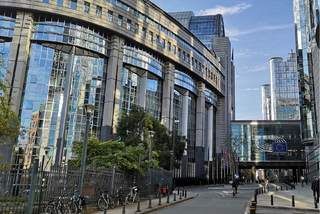
© Pixabay/Norbert Oriskó
Corruption investigations in the European Parliament: Parliamentarians draw first conclusions
The European Parliament remains affected by the most serious scandal in its history. Three Members of the European Parliament (MEPs) from the European Socialists, a former MEP and people close to them are suspected of having been bribed by third countries. Parliamentary decisions have allegedly been influenced by Qatar and Morocco. One year before the European elections, the scandal threatens to damage the reputation of the European Parliament.
In order to prevent future cases of corruption and to strengthen the integrity and independence of the Parliament, President Roberta Metsola and the chairmen of the parliamentary groups have agreed on twelve immediate measures. These are now to be discussed and implemented quickly. For example, in the future, Parliament will only maintain its relations with third countries within the framework of official parliamentary delegations. The so-called “friendship groups”, in which parliamentarians have come together informally to deepen contacts with third countries, are therefore to be banned. Such measures make sense in order to curb hitherto non-transparent working methods in parliament and thus eliminate starting points for corruption. However, it is also clear that even the most stringent measures will never be able to completely deter individual criminals.
In the medium and long term, the EP wants to implement further reforms. For example, Parliament has backed up its call to the European Commission to introduce an independent ethics body for the EU institutions, ensuring high standards of integrity and independence and enabling stricter control mechanisms. In addition, the corruption scandal both in Parliament and Commission has led to discussions on further reforms - for example, on how to deal with business trips paid for by third parties or on transparency within the funding of non-governmental organizations.
For the BDI, it is crucial that the corruption investigations in the European Parliament do not weaken the acceptance of European integration among Europe's citizens. Therefore, the EU institutions should now implement consistent and targeted reforms that get to the bottom of the problem and are actually suitable for the efficient prevention of corruption.
Measures that impede open and transparent dialogue between stakeholders and the European Parliament, however, are not suitable for solving the problem and should therefore be refrained from. The BDI and its members are registered in the EU Transparency Register where they disclose in detail which financial and human resources are used for the dialogue with the EU institutions. It is questionable, for example, whether it makes sense - as planned by the Parliament - for registered stakeholders to further provide additional information before each visit to the Parliament as to when they exchange views with whom on which topic, given that this exact information must also be made available for public inspection by Parliamentarians themselves.



